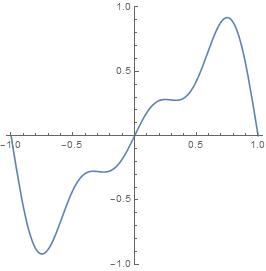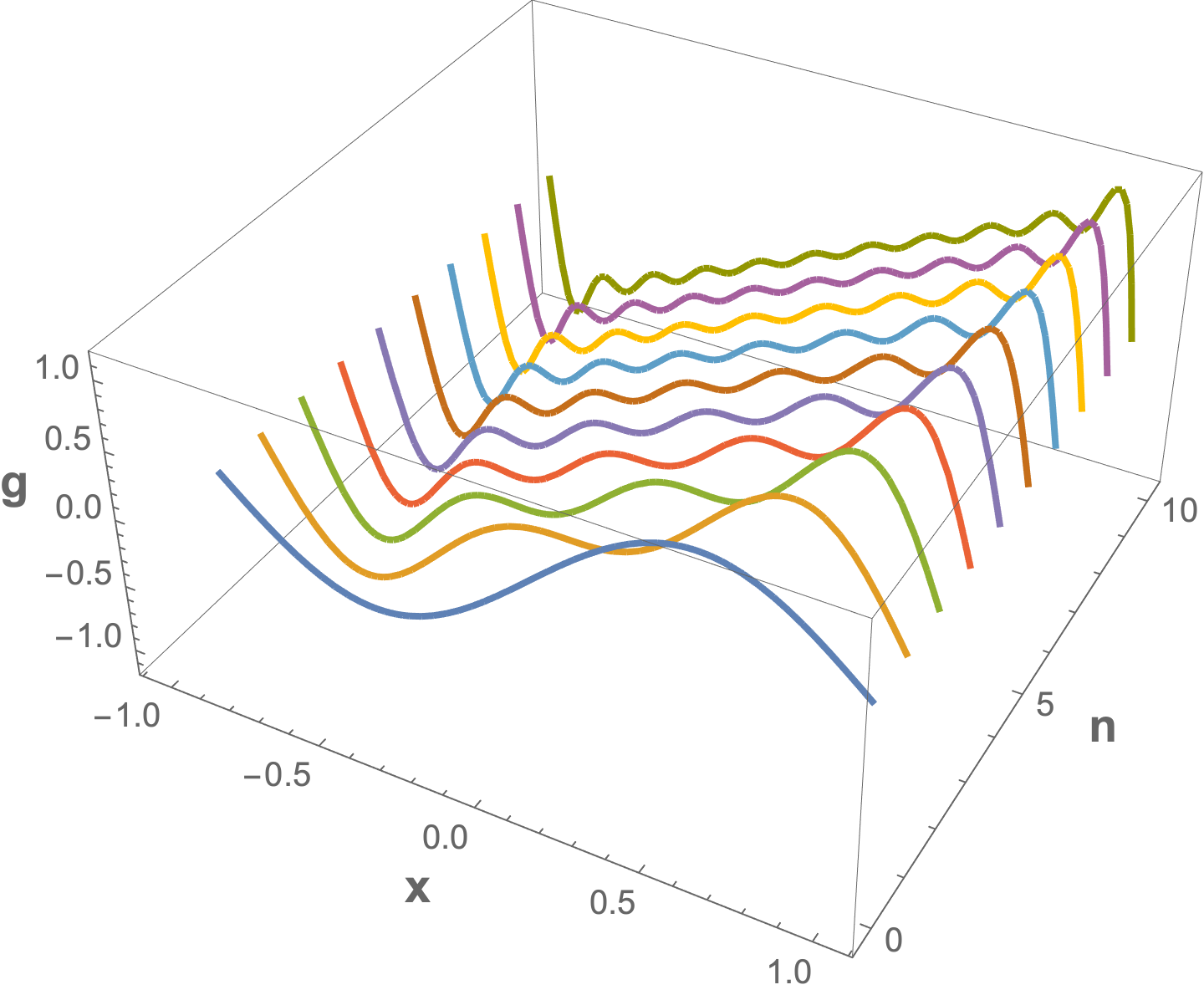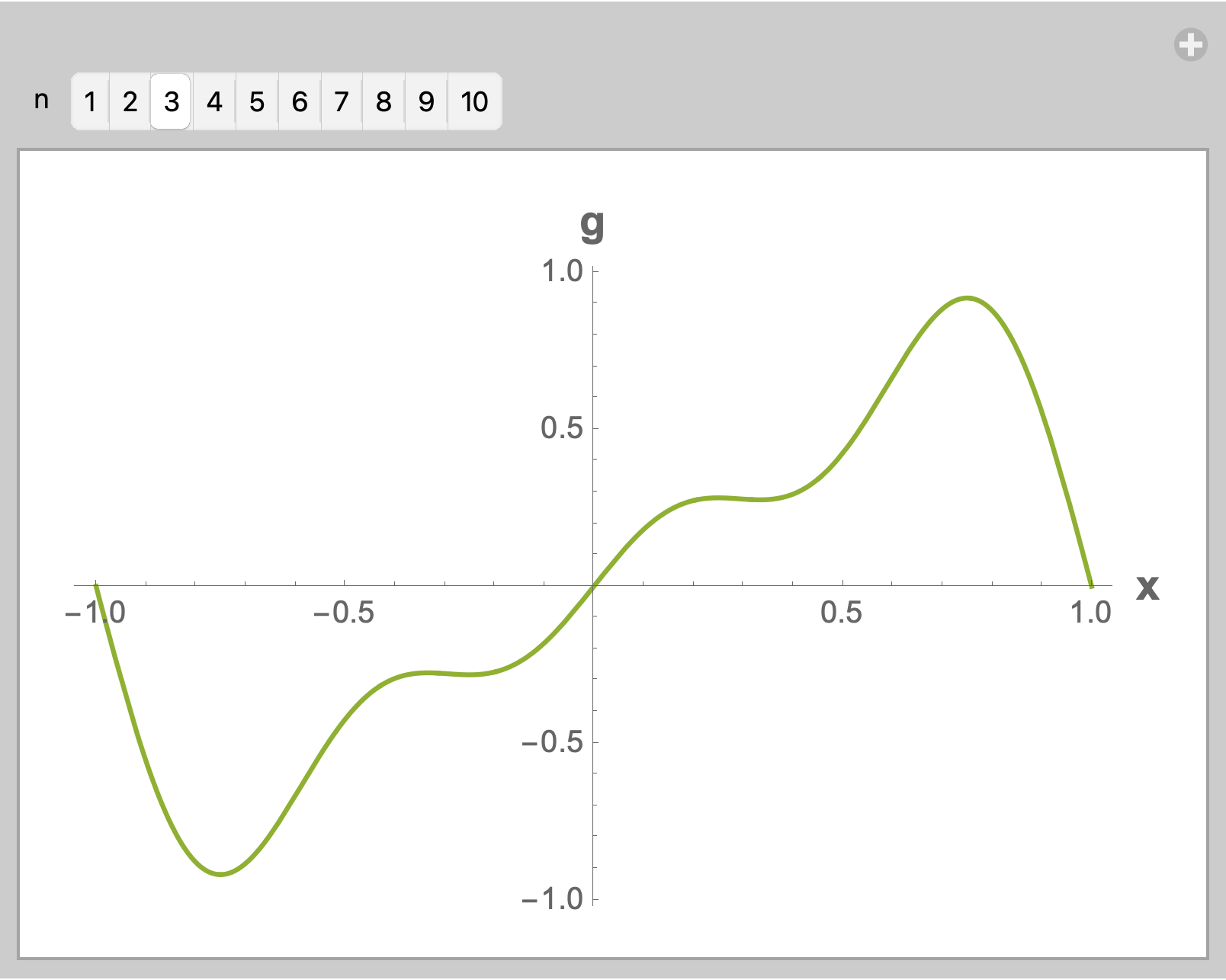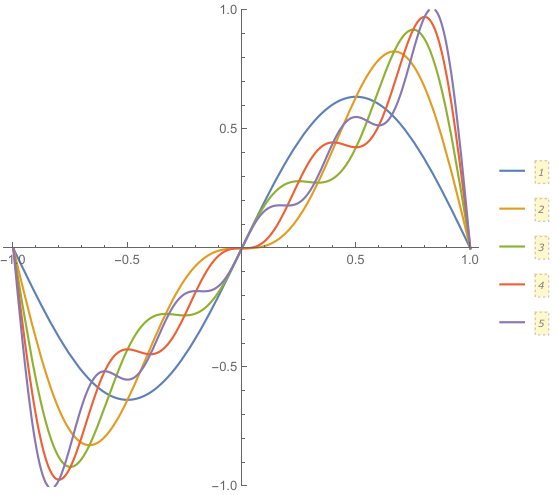f[x_] := x;
T = 2;
(*
a0 = 2coe[f, Cos, T, 0]
a[k_] := coe[f, Cos, T, k]
b[k_] := coe[f, Sin, T, k]
*)
coe[func_, type: Cos | Sin, per_, order_Integer] := coe[func, type, per, order] = Module[
{min = -per/2, max = per/2, factor = If[order == 0, 1/2, 1], x},
Return[
(2factor)/per Integrate[func[x] type[(2\[Pi] order)/per x], {x, min, max}]
]];
(*
g[x_, n_] := partsum[f, T, n][x]
*)
partsum[func_, per_, order_Integer] := partsum[func, per, order] = Module[
{},
x\[Function]
Sum[
coe[func, Sin, per, i] Sin[(2\[Pi] i)/per x] +
coe[func, Cos, per, i] Cos[(2\[Pi] i)/per x],
{i, 0, order}]
];
(* Interpolation *)
partsumtrans[func_, per_, order1_Integer, order2_Integer, tall_]
/;order2>order1 :=
partsumtrans[func, per, order1, order2, tall] =
Module[{nth = order2 - order1},
t\[Function](
x\[Function](
(1-SawtoothWave[nth t/tall])
partsum[func, per,
order1+Floor[t/tall nth]][x]+
SawtoothWave[nth t/tall]
partsum[func, per,
order1+Floor[t/tall nth]+1][x]))
]
Now we can use them to construct a demonstration:
Manipulate[Plot[partsumtrans[f, T, 0, 3, 10][t][x], {x, -1, 1},
PlotRange->1,
PlotLegends->If[IntegerQ@(3/10t), "n="<>ToString[0+3/10t],
"n="<>ToString[Floor[0+3/10t]]<>
" to "<>"n="<>ToString[Ceiling[0+3/10t]]],
PlotLabel->TraditionalForm[
FullSimplify[partsumtrans[f, T, 0, 3, 10][t][x]]]
], {t, 0, 10},
AppearanceElements->All,
ContentSize->{500, 460},
Alignment->{0, 0}]
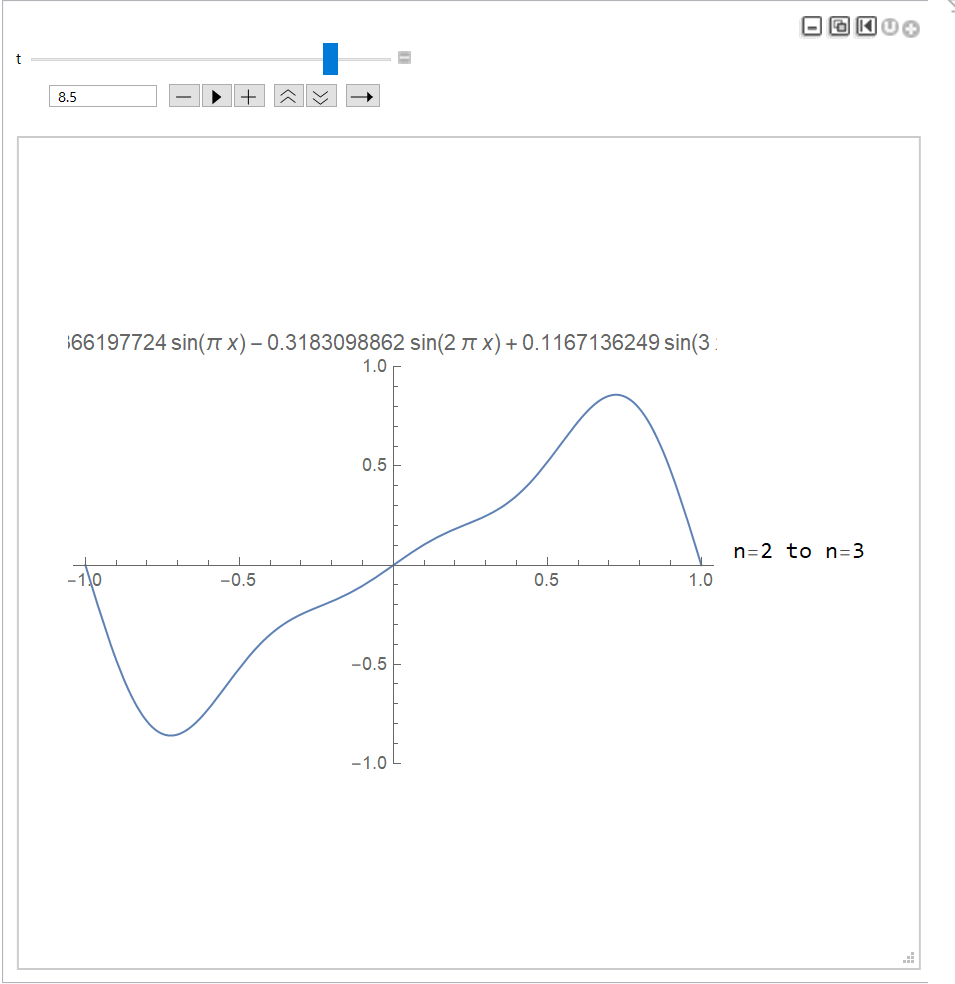
@Bob Hanlon Style:
Show[ParametricPlot3D[
Evaluate[{x, 2#/10, partsum[f, T, #][x]}&/@Range[0, 10]],
{x, -1, 1},
PlotStyle->Thick
],
ParametricPlot3D[
{x, y, partsumtrans[f, T, 0, 10, 2][y][x]},
{x, -1, 1}, {y, 0, 2},
Exclusions->None,
Mesh->None, PlotStyle->Directive[Opacity[.5]],
ColorFunction->"Rainbow",
PlotPoints->30
]]
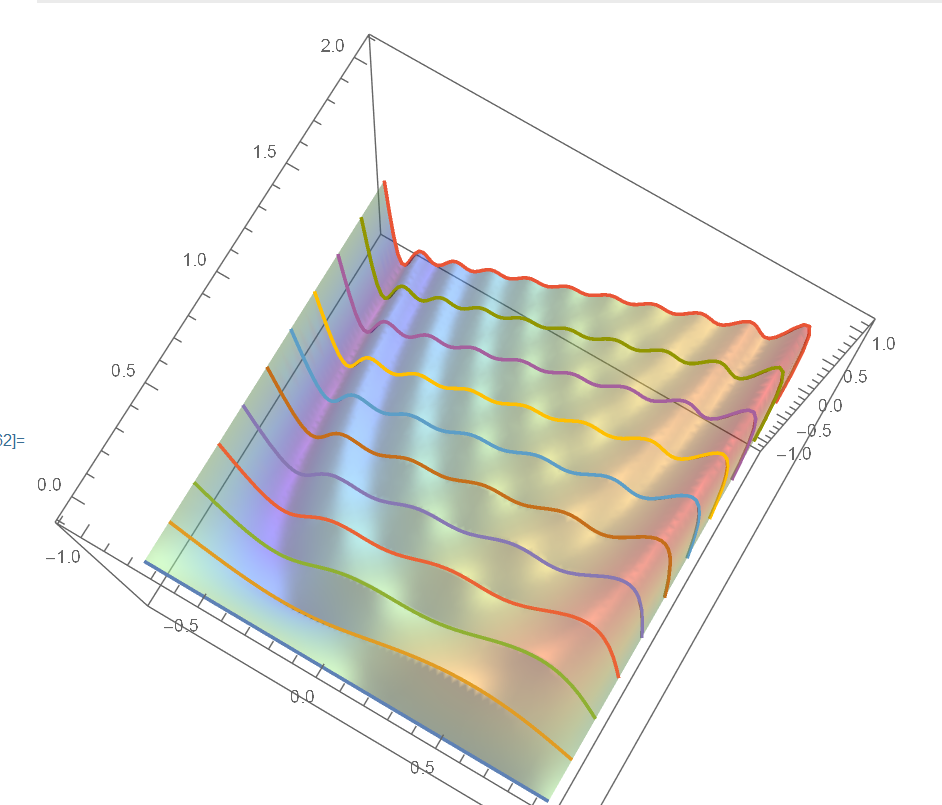
Or like @cvgmt's:
DynamicModule[{t},
Column[{Dynamic@Plot[
Evaluate[{partsumtrans[f, T, 0, 5, 1][t][x]}~Join~
(partsum[f, T, #][x]&/@Range[0,5])],
{x, -1, 1},
PlotRange->{{-1, 1}, {-1.2, 1.2}},
AspectRatio->Full,
PlotStyle->{
Red,
Sequence@@(
Directive[
Thick, Opacity[.5],
Dashed, ColorData[1][#]
]&/@Range[0, 5]
)
},
ImageSize->Medium,
PlotLegends->LineLegend[
{"animate", Sequence@@(ToString@#&/@Range[0, 5])}
]
], Animator[Dynamic[t],
AnimationRunning->False,
AppearanceElements->{
"PlayButton", "PauseButton", "ResetButton"}]},
Alignment->Center
]
]
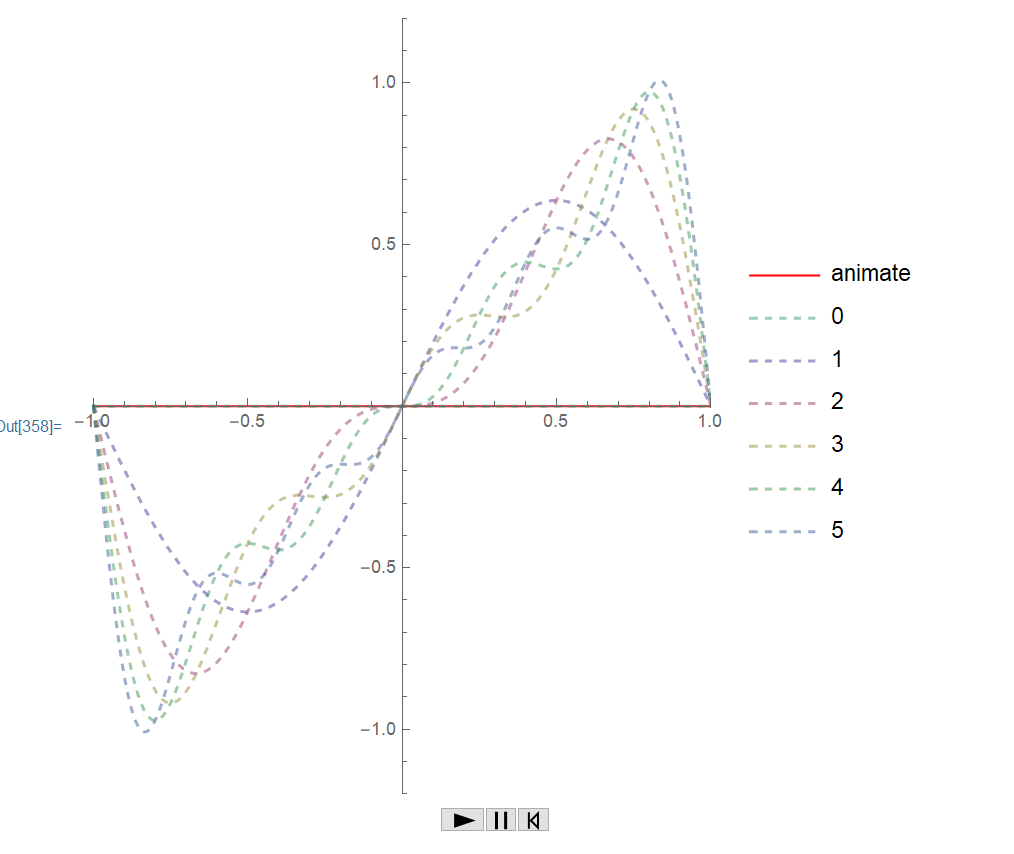
Also, you can change the interpolation-function partsumtrans to get a different performance.

